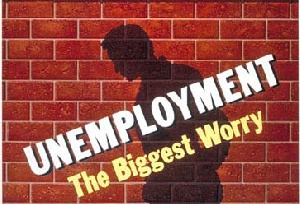Government on Tuesday told journalists that the country’s economy has made a turnaround but members of the Association of Ghana Industries (AGI) have given an entirely different view about the situation.
Seth Terkper, Finance Minister said the country’s fiscal consolidation was bearing fruits while the gap between revenues and expenditures was narrowing even though he failed to give actual figures to buttress the assertions.
According to him, the budget deficit, which recorded 11.5 percent of GDP, was now down to 7.0 percent in 2015.
“This is the first positive turn we have had since 2005.
He said there have been improvements in Ghana’s fiscal balance, inflation, current account balance and GDP growth.
But almost half of industry captains interviewed in the AGI’s Business Barometer survey for the last quarter of 2015 said the employment situation will remain unchanged.
They were also reluctant to expand their workforce this year.
Business confidence among corporate leaders also dropped by 4.17 basis points from 97.29 points in the third quarter to 93.12 points in the fourth quarter.
James Asare Agyei, President of AGI, blamed the low confidence among CEOs in the economy on the tariff increases and high taxes.
“We realized that increases in tariffs, electricity, water and other forms of taxes have further worsened business confidence that industrialists have in the economy and this is quite worrying and that is why we have called on the government to look at some key areas of the economy which requires boost. Cost of capital has become worrying situation. Apart from access, the cost of it if you are paying over 35 % is very worrying.”
.
On business performance, the survey revealed that 35 percent of CEOs expect that the business environment will remain the same while 24 percent were of the view that it will improve.
On their expectations, 58 percent of CEOs projected that business performance will develop in the first quarter of this year with seven percent expressing a contrary view.
In the fourth quarter, high cost of electricity ranked first followed by inadequate power supply and unstable currency came first among their chief concerns.
This was followed by multiplicity of taxes which came 4th while delayed payment ranked the 5th as the biggest challenge.
In the third quarter, exchange rate volatility ranked first followed by inadequate power supply and multiplicity of taxes.
But some Ghanaians say they do not see any improvement in their lives despite the claims by government.
Business News of Thursday, 11 February 2016
Source: Daily Guide

















